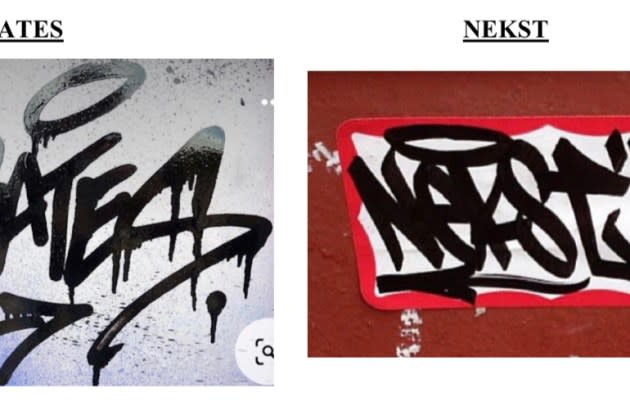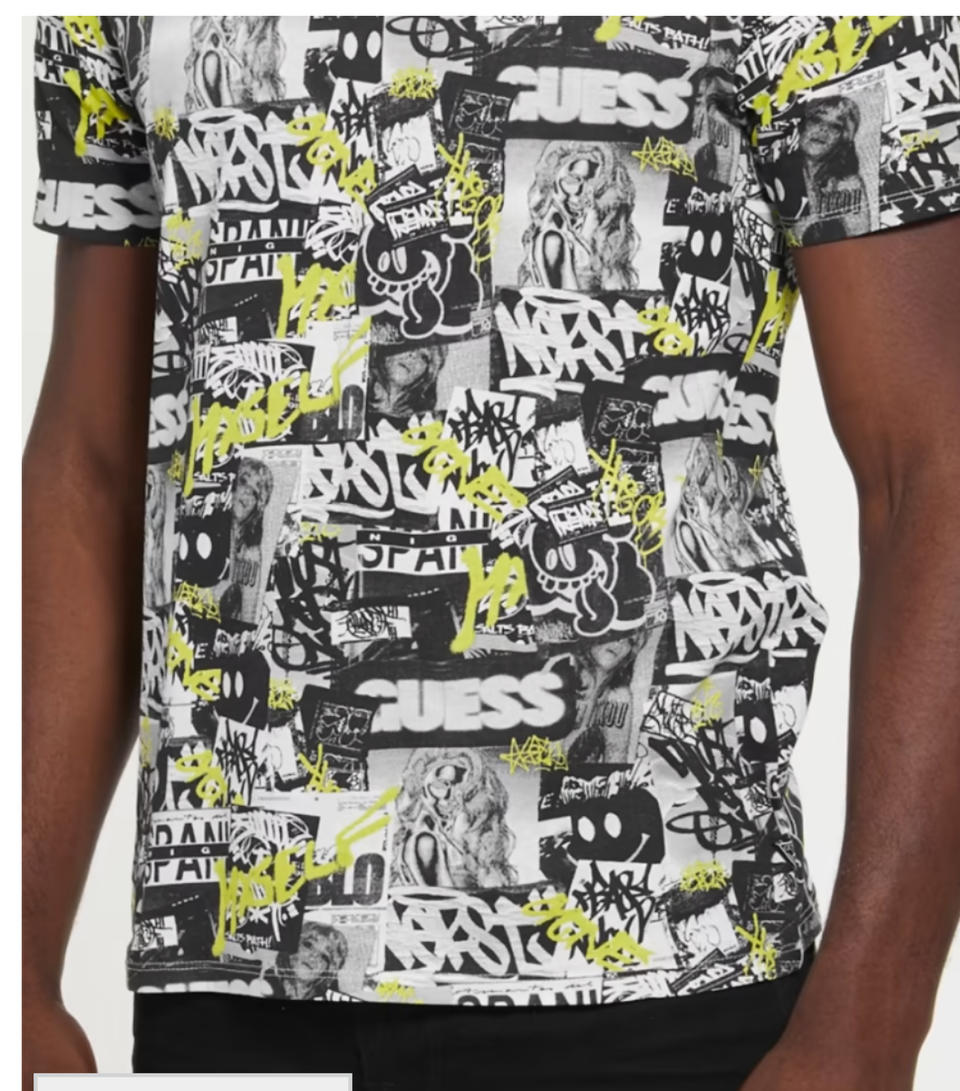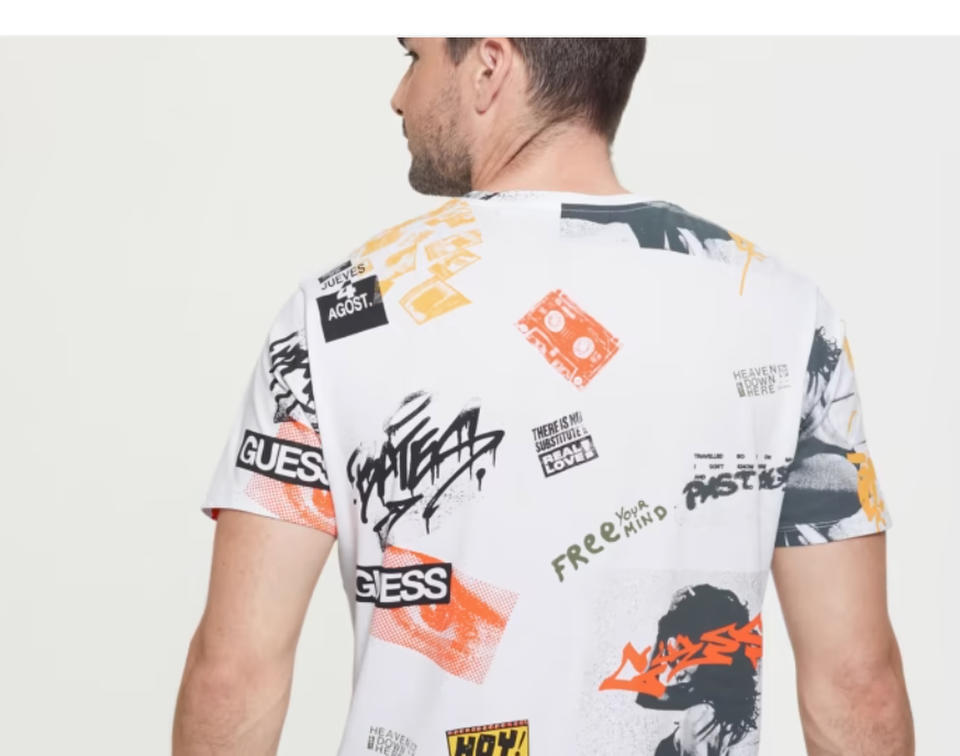Two Graffiti Artists Sue Guess Inc. and Macy’s Over Use of Their Artwork

Two well-established graffiti artists who have been creating street art for decades sued Guess Inc. and Macy’s over a Guess T-shirt collection that allegedly misappropriated their art.
The 20-page complaint claiming copyright infringement was filed in U.S District Court in Los Angeles on Jan. 12 by Patrick Griffin, the brother of deceased graffiti artist Sean Griffin known as Nekst, and Danish artist Robin Ronn, known as Bates.
More from WWD
The lawsuit maintains the artists’ tags are considered artwork reflecting among other things their elaborately expressed signatures or names, which are their “primary calling cards and source identifiers of their artwork and themselves. Nekst, in particular, is universally recognized as a pioneer of street art; and any fan would instantly recognize his tag. Bates is not far behind.”
According to attorney Jeff Gluck, representing the two artists, their creations were used on T-shirts being sold last year at Macy’s without their consent. He said he has been in contact with Guess, a decades-old clothing company based in Los Angeles, over the past year but has made no progress in resolving the issue.
“They seem not to understand or recognize how important Nekst was as a graffiti artist, who passed away in 2012. He is one of the most beloved celebrated graffiti artists of all time with a hugely important legacy and never would have agreed to do anything like this in his lifetime,” Gluck said. “To see his name and signature splashed all over these mass market T-shirts is truly horrifying to his family and forced this eventual litigation to happen.”

Bates has been practicing his art for decades. At a young age, he became one of the most prolific artists within Copenhagen’s budding hip-hop scene of the mid-1980s. He has been invited to paint in more than 30 countries. In 2018, he was in Los Angeles to showcase his work at the “California Dreaming” art show at Buckshot Gallery. “Bates is an incredible artist who has been doing graffiti for a very long time,” Gluck noted. “There is an emphasis being placed on the fact that Nekst is not alive and here with us. It is the culture’s responsibility to defend and protect his legacy. The community is in an absolute uproar over this.”

Requests for comments from Guess Inc. were not immediately returned. Macy’s said that per its policy on pending litigation, it had no comment for this time.
The artists’ lawsuit comes a little more than one year after Banksy, the famous British street artist whose real identity is not known, called out Guess for allegedly using his artwork without his consent for a clothing collection featured in the store windows of the brand’s Regent Street store in London. Via social media, he urged consumers to visit the store and shoplift items in retaliation for Guess allegedly stealing his artwork.
Earlier Guess had issued a press release touting its capsule collection, called “Guess x Brandalised With Graffiti by Banksy,” as displaying some of Banksy’s artwork including the Flower Thrower, Balloon Girl and Follow Your Dreams.
Guess maintained it had an agreement with Brandalised, billed as an image licensee, to use the artwork. Banksy countered he does not work with Brandalised and does not sell his imagery to be used for merchandise. In late 2022, Guess temporarily closed its Regent Street flagship after the brouhaha. No further news is known about any agreement between Banksy and Guess, which no longer has a press release about the collection in its on-site archives.
In the Los Angeles lawsuit, the artists said that they did not freely choose to associate their artwork with Guess and any suggestion of that was false and misleading. “Besides defrauding its customers and thereby generating huge revenues based on the purported affiliation with the artists, Guess’s false claims of endorsement and affiliation harms plaintiffs’ reputations by causing the world to think that they (or their estate in the case of Nekst, who is deceased) are corporate sellouts, willing to trade their artistic independence, legacy and credibility for a quick buck, which could not be further from the truth,” the court documents said. “Nekst in particular represents a sacrosanct figure that Guess freely defiles. During his life, Nekst worked tirelessly to keep his work authentic and artistically unassailable — and he would be turning over in his grave if he could see what is currently on offer from Guess.”
Best of WWD


